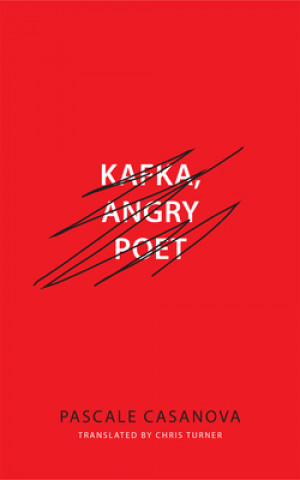
Kód: 04742542
Kafka, Angry Poet
Autor Pascale Casanova
Franz Kafka was one of the most influential writers of the twentieth century. His writing contributed greatly to existentialism, and the term "Kafkaesque" is now synonymous with the literature of the surreal, the complex, and the ... celý popis
- Jazyk:
 Angličtina
Angličtina - Vazba: Pevná
- Počet stran: 304
Nakladatelství: Seagull Books London Ltd, 2015
- Více informací o knize

761 Kč
Dostupnost:
50 % šance Máme informaci, že by titul mohl být dostupný. Na základě vaší objednávky se ho pokusíme do 6 týdnů zajistit.
Máme informaci, že by titul mohl být dostupný. Na základě vaší objednávky se ho pokusíme do 6 týdnů zajistit.Prohledáme celý svět
Mohlo by se vám také líbit
-

Building the IT Consulting Practice
1669 Kč -

Avon Street
342 Kč -

Archaeology of Power and Politics in Eurasia
2523 Kč -

Ecology, Engineering, and Management
4668 Kč -

New Public Management in Action
3320 Kč -
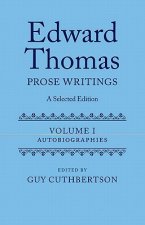
Edward Thomas: Prose Writings: A Selected Edition
6539 Kč -

Uberrima Fides.
1982 Kč
Darujte tuto knihu ještě dnes
- Objednejte knihu a zvolte Zaslat jako dárek.
- Obratem obdržíte darovací poukaz na knihu, který můžete ihned předat obdarovanému.
- Knihu zašleme na adresu obdarovaného, o nic se nestaráte.
Informovat o naskladnění knihy
Zadejte do formuláře e-mailovou adresu a jakmile knihu naskladníme, zašleme vám o tom zprávu. Pohlídáme vše za vás.
Více informací o knize Kafka, Angry Poet
Nákupem získáte 76 bodů
 Anotace knihy
Anotace knihy
Franz Kafka was one of the most influential writers of the twentieth century. His writing contributed greatly to existentialism, and the term "Kafkaesque" is now synonymous with the literature of the surreal, the complex, and the illogical. His works sustained themes of violence, family conflict, bizarre and all-powerful bureaucracies, and fantastical transformations. However, in Kafka, Angry Poet, Pascale Casanova looks past the customary analyses of Kafka's work and dives deep into his mind, examining his motives rather than the results. She bravely asks the question, "What if Kafka were the most radical of social critics? What if he had actually attempted to pull the wool over our eyes with narratives that are, in fact, subtly deceptive?" The hypothesis she develops is that Kafka began with an awareness of the tragic fate of the German-speaking Jews of early twentieth-century Prague and was subsequently led to reflect on other forms of power, such as male dominance and colonial oppression. The stories produced as a result were traps for the unwary, throwing the reader off the scent with the use of unreliable and even deceitful narrators. Curiously, says Casanova, it is not in literature that one finds the answers to these questions but in German ethnology, a field which, as an intellectual of the Austro-Hungarian Empire, Kafka knew well. Through her detailed research, Casanova shows us a combative Kafka who is at once ethnologist and investigator, unstintingly denouncing all forms of domination with the kind of tireless rage that was his hallmark. In so doing, she sheds light on the deep-seated reasons for Kafka's anger.
 Parametry knihy
Parametry knihy
Zařazení knihy Knihy v angličtině Literature & literary studies Literature: history & criticism Literary studies: general
761 Kč
- Plný název: Kafka, Angry Poet
- Autor: Pascale Casanova
- Jazyk:
 Angličtina
Angličtina - Vazba: Pevná
- Počet stran: 304
- EAN: 9780857421623
- ISBN: 085742162X
- ID: 04742542
- Nakladatelství: Seagull Books London Ltd
- Hmotnost: 726 g
- Rozměry: 164 × 237 × 37 mm
- Datum vydání: 21. April 2015
Oblíbené z jiného soudku
-

How to Read a Book
302 Kč -
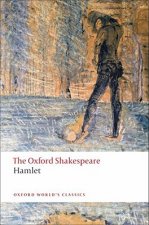
Hamlet: The Oxford Shakespeare
268 Kč -

Art of Rhetoric
80 Kč -
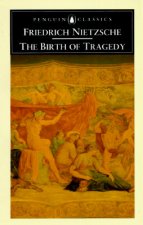
Birth of Tragedy
249 Kč -

Selected Essays
276 Kč -

Complete Short Stories of Ambrose Bierce
517 Kč -

Serpent Power
521 Kč -

Annotated Alice
323 Kč -

Moby-Dick
464 Kč -

Nordic Noir
410 Kč -

Marquis de Sade: A Very Short Introduction
273 Kč -

Children's Fantasy Literature
669 Kč -

Mysteries of Udolpho
302 Kč -

Joseph Andrews and Shamela
225 Kč -
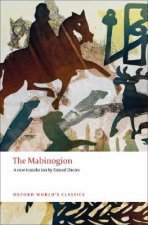
Mabinogion
276 Kč -

The Picture of Dorian Gray
169 Kč -
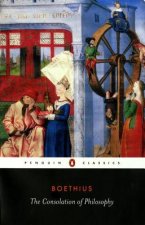
Consolation of Philosophy
276 Kč -

Seven Basic Plots
574 Kč -

Gulliver's Travels
169 Kč -

Life of Samuel Johnson
631 Kč -

Powers of Horror
1109 Kč -

Road to Hel
1373 Kč -

Anna Karenina
223 Kč -

Wide Sargasso Sea
236 Kč -
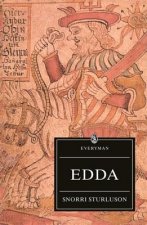
Edda
293 Kč -

Finn and Hengest
249 Kč -

If Not, Winter: Fragments Of Sappho
424 Kč -

Africa's Tarnished Name
101 Kč -
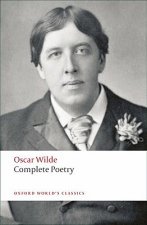
Complete Poetry
196 Kč -

Captain is Out to Lunch
380 Kč -

Devils
302 Kč -

Two Treatises of Government
264 Kč -

Count of Monte Cristo
276 Kč -

Moveable Feast
268 Kč -

Moveable Feast
302 Kč -
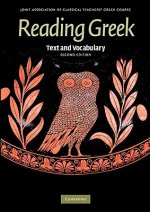
Reading Greek
964 Kč -

Dream Story
276 Kč -
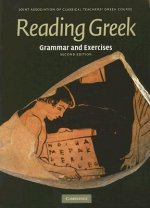
Reading Greek
1067 Kč -

Analysis of Donna Haraway's A Cyborg Manifesto
243 Kč -
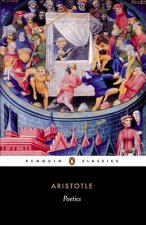
Poetics
276 Kč -

Selected Journals of Lm Montgomery Volume III 1921-1929
515 Kč -

Leaves of Grass
462 Kč -
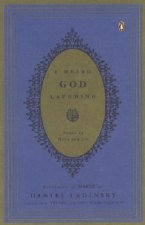
I Heard God Laughing
421 Kč -

Tragedy of King Richard III: The Oxford Shakespeare
223 Kč -

Wild Ass's Skin
321 Kč -

Cambridge Greek Lexicon 2 Volume Hardback Set
2378 Kč -

Great Expectations
169 Kč -

Letters To Sartre
370 Kč -

Discarded Image
455 Kč
Osobní odběr Praha, Brno a 12903 dalších
Copyright ©2008-24 nejlevnejsi-knihy.cz Všechna práva vyhrazenaSoukromíCookies


 Vrácení do měsíce
Vrácení do měsíce 571 999 099 (8-15.30h)
571 999 099 (8-15.30h)